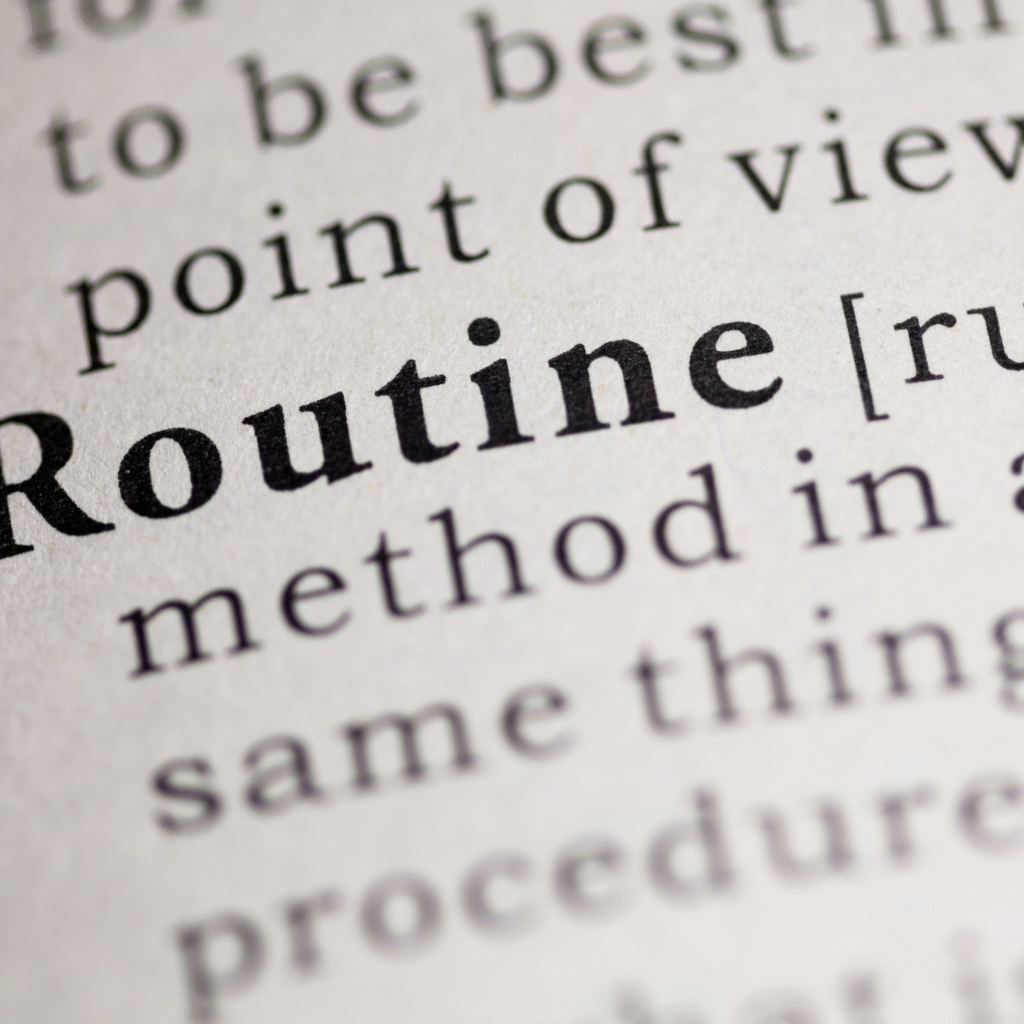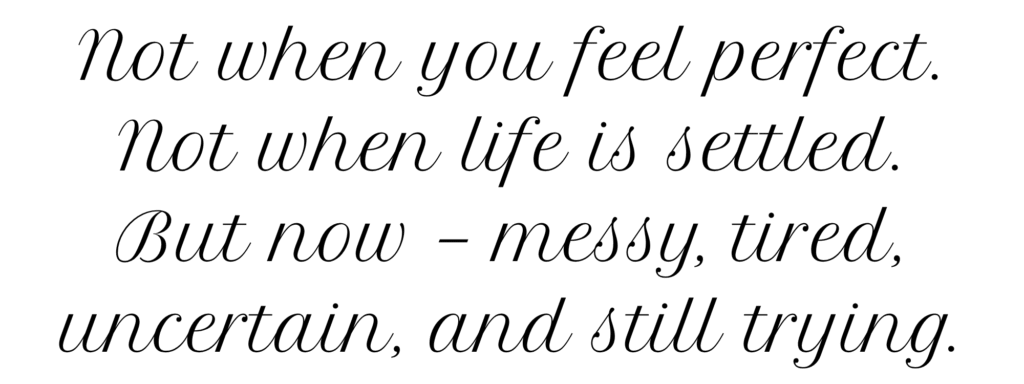There’s a strange heaviness that creeps in when you feel stuck.

You want to move — but can’t. You make plans — but don’t follow through. You think about change — but feel frozen. And the more stuck you feel, the harder it gets to believe in your own momentum.
It happens quietly. You tell yourself, “I’ll start tomorrow,” until tomorrow becomes next week. You start something but lose interest halfway. You begin to question whether you’re just lazy, undisciplined, or somehow flawed.
But what if you’re not broken at all?
What if feeling stuck is just a signal — not a sentence?
The Truth About Feeling Stuck
Being stuck doesn’t mean you’re lazy. It doesn’t mean you lack ambition or talent. More often, it means you’re overwhelmed. Or afraid. Or unclear. Or just human.

We live in a world that praises constant progress, but rarely talks about the pauses, the confusion, or the silent in-between seasons.
But everyone — everyone — gets stuck.
The difference between staying stuck and moving forward isn’t some magical motivation spark. It’s how you respond to the moment you’re in.
Why We Get Stuck
Understanding the roots of feeling stuck helps you meet yourself with more compassion. Here are a few common reasons:
- Fear of failure: You don’t move because trying means risking something — your pride, your identity, your comfort.
- Perfectionism: You wait for the “right” time, the “perfect” mood, the “ideal” version of yourself to begin.
- Overthinking: You get trapped in analysis, telling yourself you need more research, more clarity, more planning.
- Shame from past failures: You remember what didn’t work last time and assume this time will be the same.
- Burnout: You’re simply tired — mentally, emotionally, spiritually. Your body wants rest, but your mind demands productivity.

Each of these blocks is real. But none of them are permanent.
The Illusion of “One Big Push”
One of the biggest traps of self-improvement is thinking you need a giant surge of motivation to fix your life.
You imagine a breakthrough — a moment where everything clicks, and you finally become the version of yourself you’ve been dreaming of.
But that’s not how growth works.
It’s not one big push. It’s not one grand moment. It’s dozens of tiny, quiet choices that slowly shift your path.

The day you decide to clean one drawer.
The moment you choose to take a 10-minute walk instead of scrolling.
The night you put your phone down and go to bed on time — not to be perfect, but to be kind to your future self.
That’s how movement begins: small, unglamorous, and deeply powerful.
Start Before You Feel Ready
Waiting to feel ready is one of the greatest causes of stuckness.
Truth is, you probably won’t feel ready. You won’t feel like doing the hard thing. You won’t feel perfectly inspired. And that’s okay.
You can begin while still feeling uncertain. You can start even if your hands are shaking.
The readiness doesn’t come first. The movement comes first. And then, slowly, confidence follows.
Let Go of “All or Nothing”

How many times have you said something like:
- “I’ll start fresh on Monday.”
- “If I can’t do the whole routine, what’s the point?”
- “I already messed up today — I’ll just start over tomorrow.”
This is the trap of all or nothing thinking. And it’s a mindset that keeps you in cycles of starting over, instead of building forward.
Real progress doesn’t come from perfect days. It comes from imperfect consistency — choosing again, showing up halfway, doing a little instead of giving up completely.
Tiny steps count. Half-efforts matter. Momentum builds quietly.
How to Gently Move Forward
If you’re feeling stuck right now, here are simple, human ways to shift without burning yourself out:
1. Lower the bar
Instead of thinking, “What’s the best version of this?” ask, “What’s the easiest version I can do today?”
Don’t aim to write a chapter. Write a sentence. Don’t plan to work out for an hour. Just stretch for five minutes. These tiny actions reduce resistance — and get you moving.

2. Name what you’re avoiding
Often we stay stuck because we’re subconsciously avoiding something uncomfortable — failure, discomfort, being seen, even success.
Ask yourself: What am I afraid will happen if I actually move forward?
Naming it reduces its power.

3. Build a “bare minimum” routine
Create a version of your day that’s so simple, it’s almost impossible to fail.
For example:
- Drink one glass of water after waking up.
- Write one line in a journal.
- Clean for five minutes.
These small wins rebuild self-trust — and prove to your brain that you can take action.

4. Make peace with slow
Your pace doesn’t define your worth. Growth can be slow, awkward, nonlinear. That doesn’t make it meaningless — it makes it real.
Sometimes what looks like “nothing is happening” is actually you building something steady under the surface.

You’re Not Starting from Scratch
It’s easy to think, “I’m behind.” But behind what? Behind who?
You are not starting from zero. You are starting from experience. From survival. From everything you’ve learned, tried, endured, and overcome.
Your delays, detours, and quiet seasons weren’t wasted. They shaped you.
And now, you’re here — with a chance to begin again.
When You Feel Stuck Again (Because You Will)
Let’s be honest: this won’t be the last time you feel stuck. Life is full of cycles — expansion, contraction, progress, pause.

But next time it happens, remember:
- You’re not failing — you’re pausing.
- You’re not lost — you’re resting or realigning.
- You’re not behind — you’re unfolding.
The question isn’t, “How do I avoid getting stuck again?” It’s “How do I meet myself kindly when I do?”
Because sometimes, getting unstuck isn’t about pushing harder.
It’s about softening. Listening. Taking one honest step at a time — with compassion, not pressure.
Final Thought
Getting unstuck doesn’t require a grand gesture. It just requires a small willingness to begin again.

That’s where transformation quietly begins.





